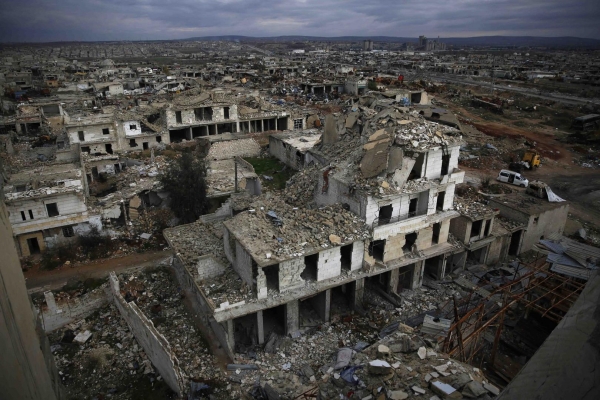On 27 May the United Nations (UN) and the International Committee of the Red Cross (ICRC) released a joint declaration to urge warring parties, in areas affected by conflicts, to adhere to a pause in fighting. The declaration also reaffirmed the need to avoid the use of explosive weapons with wide area effects in populated areas (EWIPA) and warned about the deterioration of civilians’ living conditions due to the spread of coronavirus.
EWIPA represent one of the greatest risks for civilians, particularly for their massive and indiscriminate effects. Action on Armed Violence (AOAV)’s 2019 dataset estimates that at least 17. 904 of those killed or injured by explosive weapons were civilians; AOAV’s research highlights that when these weapons are used in towns and cities 9 out 10 victims are civilians.
For victims of this kind of warfare, the situation has been worsened by the spread of the coronavirus- pandemic. In places such as Afghanistan, Libya, Syria and Yemen, the prolonged conflicts and the use of explosive weapons have disrupted electricity, water, health systems as well as other essential services. This makes it difficult to practice preventive measures such as hand-washing. UN Secretary General Antonio Guterres has also stated that “the COVID-19 crisis is fast threatening to become a protection crisis” emphasizing the fact that emergency health measures can be abused to control population movements or withhold services.
So far several governments, regional organizations, civil society groups and non-state armed groups have welcomed the previous appeals for a global ceasefire to allow aid workers to bring relief to people in areas affected by conflict, but many others have ignored it. The UN and the ICRC urge to act now in order to prevent the collapse of the world’s most fragile health-care systems in front of this new “immense threat to humanity, COVID-19”.
To read more, please visit:
https://www.icrc.org/en/document/joint-unicrc-op-ed-explosive-weapons-populated-areas-and-covid-19
https://www.un.org/press/en/2020/sc14196.doc.htm
https://www.icrc.org/en/document/covid-crisis-becoming-protection-crisis
https://www.icrc.org/en/document/covid-19-movement-appeal
Author: Leyla El Matouni







